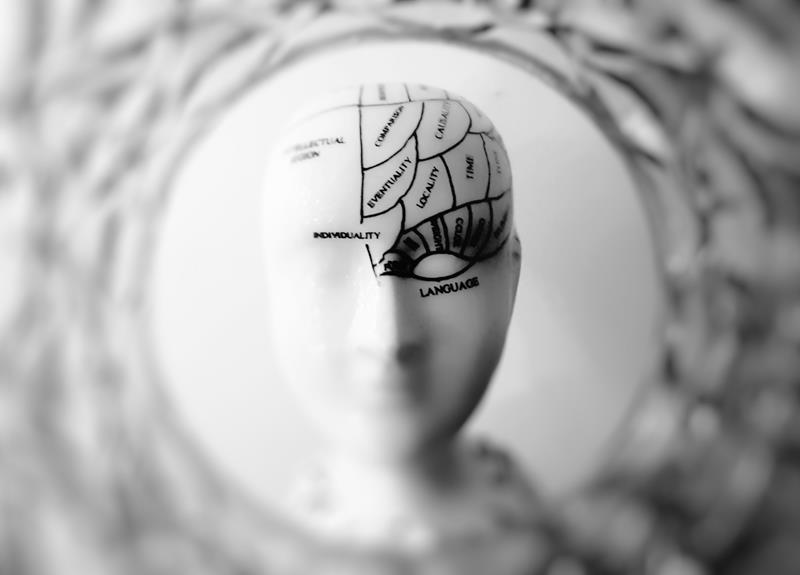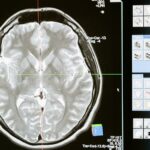Legal Battles and Emotional Turmoil: Navigating Brain Death
This article critically examines the complex legal and emotional landscape surrounding brain death. It explores the medical and legal definitions, implications, and real-life cases of brain death. The discussion navigates the intersection of medical malpractice and brain death, the emotional challenges for families, and the importance of legal guidance in these cases. This comprehensive guide aims to provide clarity for those grappling with the complexities of this unfortunate circumstance.

Key Takeaways
- Brain death is a condition where a person's brain functions have irreversibly ceased, and it is different from a coma or vegetative state.
- The distinction between being brain dead and legally deceased is important for legal considerations, such as survivor benefits or compensation in wrongful death lawsuits.
- Brain death can occur due to medical malpractice, such as failure to diagnose, surgical errors, or improper medication.
- Families dealing with a loved one declared brain dead may have legal options, such as filing a wrongful death lawsuit, and seeking the guidance of an experienced lawyer can help navigate the legal process and seek justice.
Understanding the Concept of Brain Death
In our discussion about understanding the concept of brain death, it's crucial for us to comprehend that this refers to an irreversible cessation of all brain functions, distinguishing it from other states like comas or vegetative states. It is not a simple suspension of consciousness; it represents the absolute end of mental activity and thus, life. This condition is determined through meticulous medical examination, including an evaluation of the patient's ability to exhibit any form of cognitive or reflex activity. It's also essential to reflect on the ethical considerations tied to brain death. These include the decision to end life support, organ donation, and the emotional toll on the family. Understanding brain death is not just a medical necessity, but a moral imperative as well.
Brain Death Versus Coma: The Medical Perspective
While both brain death and coma involve a significant loss of brain function, the two conditions differ in a number of critical ways, and understanding these differences is essential for medical professionals, patients, and their families. A coma is a temporary state of unconsciousness, from which a patient has the potential to recover, while brain death implies a permanent cessation of all brain activity. Misdiagnosis can occur, leading to complex ethical considerations. For instance, a patient diagnosed as brain dead may be removed from life support, while a comatose patient would continue to receive treatment. Preventing brain death misdiagnosis is therefore paramount to ensure appropriate and ethical treatment decisions are made. The difference between these states underscores the importance of accurate, detailed neurological examinations in making these determinations.
The Legal Definition and Implications of Brain Death
The legal definition of brain death is a complex matter with profound implications, and it serves as a crucial determinant in cases such as medical malpractice lawsuits, organ donation decisions, and determining the time of death. This definition hinges on specific medical criteria, including irreversible cessation of all brain functions. Ethical considerations also play a significant role, as the decision to declare someone brain dead can have far-reaching consequences, including legal and emotional ramifications for the family involved. It is also key in establishing the timeline in potential wrongful death cases. However, complexities arise due to the advanced medical interventions available today, which can maintain physiological functions in a brain-dead individual, blurring the line between life and death.
High-Profile Cases Surrounding Brain Death
Several high-profile cases surrounding brain death have highlighted the intricate legal, ethical, and emotional complexities involved in these situations. These cases expose the delicate intersection of medical science and law, demanding a thorough understanding of both domains. The high profile brain death cases like those of Terri Schiavo and Jahi McMath underscore the medical and legal complexities involved in determining brain death and its distinction from other states of unconsciousness. They also illuminate the contentious legal debates surrounding end-of-life decisions, organ transplantation, and medical malpractice. As brain death cases continue to gain public attention, they prompt crucial discussions about the legal definitions of death, the responsibilities of medical professionals, ethical dilemmas in medicine, and the profound emotional turmoil faced by families involved.
The Unfortunate Intersection of Brain Death and Medical Malpractice
In no less than two-thirds of cases, brain death has unfortunately been linked to incidents of medical malpractice where negligence or errors in treatment have been identified. When healthcare professionals fail to uphold standards of care, it can lead to devastating results, including irreversible brain damage. The intersection of brain death and medical negligence raises complex legal and ethical issues. Victims' families may consider compensation options, including filing a wrongful death lawsuit. However, proving medical negligence can be challenging, requiring comprehensive evidence and expert testimonies. The process may also add emotional strain on the grieving family. Despite these challenges, pursuing legal recourse can help families obtain justice and prevent similar medical errors from happening in the future.
Common Causes of Medical Malpractice Leading to Brain Death
Medical errors, such as misdiagnosis, surgical mistakes, and inappropriate medication, often constitute common causes of medical malpractice, and these errors can tragically lead to brain death in patients. Misdiagnosis consequences can be severe, leading to incorrect treatment plans or delays in necessary medical interventions, which can exacerbate existing health conditions and inadvertently result in brain death. Furthermore, surgical mistakes and inappropriate medication can cause irreversible damage to the brain. Given the permanency of brain death, long term care options are limited to life support, which raises ethical considerations for both the medical community and the patient's family. Therefore, it becomes crucial for healthcare providers to exercise utmost diligence and accuracy in patient diagnosis and treatment to mitigate the risk of such devastating outcomes.
Navigating the Legal Landscape: Wrongful Death Lawsuits
Every single wrongful death lawsuit involves a complex set of legal rules and procedures, and requires an experienced lawyer to help navigate through. These lawsuits often arise from situations where medical negligence has resulted in a patient's brain death. The objective of such lawsuits is to secure compensation claims for the loss endured by the patient's family. In these cases, it is crucial to meticulously analyze medical records and consult medical experts to establish negligence. The detail-oriented process involves proving that the healthcare provider deviated from the standard of care, which directly led to the patient's brain death. It is also essential to quantify the economic and non-economic damages for the compensation claim. Therefore, understanding the intricacies of wrongful death lawsuits is vital for families seeking justice in cases of brain death due to medical negligence.
Potential Causes and Scenarios for Wrongful Death Cases
Several potential causes such as surgical errors, misdiagnosis, and improper medication can lead to wrongful death cases, and each scenario presents unique challenges for establishing negligence or liability. A potential misdiagnosis, for instance, may result from a physician's failure to accurately interpret a patient's symptoms, leading to incorrect or delayed treatment. Similarly, surgical errors could range from wrong-site surgery to unintended injury during the procedure, while improper medication could involve prescribing incorrect dosage or even the wrong drug. These instances of medical malpractice necessitate establishing negligence, which requires a comprehensive analysis of the healthcare professional's conduct. Concerning compensation options, they can cover loss of income, funeral expenses, and loss of companionship, among others, providing financial relief to the bereaved.
The Role of the Legal System in Brain Death Cases
In brain death cases, the legal system plays a pivotal role in determining the cause of death and adjudicating potential malpractice claims, but it also provides a platform for families to seek justice and compensation for their loss. This system evaluates whether standard medical protocol was followed and if any negligence or malpractice occurred. The legal system's role in determining brain death is crucial, as it establishes the legal status of the deceased which has profound implications for organ donation. Legal considerations for organ donation in brain death cases are complex and often involve ethical dilemmas. In these instances, the law helps balance the rights of the deceased, their family's wishes, and the needs of potential organ recipients. It ensures a fair process, protecting the interests of all parties involved.
Emotional Challenges Families Face When a Loved One Is Declared Brain Dead
The declaration of a loved one as brain dead brings a deluge of emotional distress to families, and it often leads to complex legal and ethical dilemmas that demand immediate attention. Emotional support is critical during these trying times, with grief counseling serving as a key resource to help families navigate their devastating loss. The emotional turmoil is further compounded by the necessity to engage in legal battles, exploring potential claims of medical malpractice or wrongful death. The process can feel overwhelming, as families grapple with understanding the cause of brain death while simultaneously dealing with the intricacies of the legal system. Ultimately, the emotional challenges faced by families when a loved one is declared brain dead necessitate compassionate, comprehensive support, both emotionally and legally.
Legal Recourses for Families Dealing With Brain Death
Before the issue of brain death becomes a lasting memory, families must confront a myriad of legal considerations, and this often includes exploring options such as filing a wrongful death lawsuit or pursuing a claim of medical malpractice. Understanding their legal rights is crucial as this can significantly influence the course and outcome of their case. Medical malpractice claims can be complex, requiring substantial evidence and expert testimony to establish a healthcare provider's negligence. Wrongful death lawsuits, on the other hand, seek compensation for the loss of the deceased, covering aspects such as lost wages, funeral expenses, and emotional distress. The compensation options available to families can help alleviate financial burdens and provide a measure of closure. Navigating these legal recourses can be challenging, making the guidance of an experienced attorney invaluable.
The Importance of Legal Guidance in Brain Death Cases
Given the complexity of brain death cases, obtaining sound legal guidance is absolutely essential, and it can truly make a difference between a successful outcome and a more challenging scenario. An adept legal representation can navigate the intricate medical terminologies, legal procedures, and the emotional turmoil associated with such cases. They can provide substantial advice on the rights, obligations, and potential compensation options for the affected parties. A proficient lawyer is beneficial in helping families comprehend the nuances of their case, the standards of care expected from medical professionals, and the legal boundaries of brain death. Moreover, they can provide critical assistance in ensuring that the necessary medical and legal evidence is effectively utilized, thereby increasing the chances of a favorable legal outcome.
Frequently Asked Questions
What Is the Process for Making a Decision About Organ Donation When a Loved One Is Declared Brain Dead?
When a loved one is declared brain dead, the decision for organ donation typically falls to next of kin. This process can be complex and fraught with family disagreements, particularly if the deceased did not express specific wishes prior to their death. The hospital's organ procurement organization usually guides this process. However, even in these circumstances, donation refusal by the family is respected, making it a sensitive and often contentious issue.
How Does a Family Cope With the Emotional Stress of Dealing With a Brain-Dead Loved One Who Is Kept on Life Support?
Families coping with the emotional stress of a brain-dead loved one on life support often seek professional help. Grief counseling can provide emotional support, coping strategies, and an understanding of the grieving process. Support groups offer a space to share experiences and feelings with those facing similar situations. This dual approach can be beneficial in navigating these challenging circumstances, emphasizing emotional well-being and resilience during a profoundly difficult time.
What Are the Ethical Considerations Surrounding the Decision to End Life Support for a Brain-Dead Individual?
Ethical considerations surrounding the decision to end life support for a brain-dead individual often involve religious perspectives and cultural differences. These nuances can influence perceptions about the sanctity of life, the definition of death, and the acceptability of life-sustaining measures. Additionally, ethical considerations include respecting patient autonomy, ensuring dignity in death, and balancing the prolongation of life against the potential for suffering. The complexity of these issues necessitates thoughtful dialogue among healthcare providers, ethicists, and the patient's family.
How Are Children and Adolescents Affected When a Close Family Member Is Declared Brain Dead?
Children and adolescents experience profound emotional distress when a close family member is declared brain dead. They may grapple with feelings of confusion, fear, and profound grief. Parental bereavement can disrupt their sense of security, leading to difficulties in school and social interactions. In such circumstances, grief counselling becomes essential, providing a safe space for expressing feelings and learning coping strategies. The focus is on fostering resilience and facilitating the process of adjustment and healing.
How Does the Financial Burden of Keeping a Brain-Dead Individual on Life Support Factor Into Legal Decisions and Settlements?
The financial burden of maintaining a brain-dead individual on life support significantly influences legal decisions and settlements. This burden, often referred to as the 'Financial Impact', includes ongoing medical costs, care expenses, and potential income loss. Insurance Policies play a vital role in offsetting these costs. However, insurance limits may be insufficient, leading to financial strain. Therefore, financial impact becomes a crucial factor in negotiating settlements in wrongful death or medical malpractice lawsuits.
Conclusion
In conclusion, brain death, characterized by irreversible cessation of brain functions, presents a plethora of emotional and legal challenges. It necessitates a keen understanding of its medical and legal implications. High-profile cases underscore its intersection with medical malpractice and the critical role of the legal system. The emotional turmoil families endure highlights the need for legal recourses and expert legal guidance, making it a complex issue warranting comprehensive exploration.

This post has been generated by AI and was not reviewed by editors. This is Not legal advice. Please consult with an attorney.




